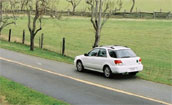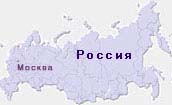|
1.
|
Answering the Question Чей? - Whose?
|
|
|
We have already learned how to answer the question чей? (чья?, чьё?, чьи?) -
whose? with possessive pronouns. Review the following questions and answers.
Click each dialogue to listen, then read it aloud.
|

|
|
1. - Чей это карандаш?
- Это его карандаш.
|
1. - Whose pencil is this?
- This is his pencil.
|
|
2. - Чья это машина?
- Это его машина.
|
2. - Whose car is this?
- This is his car.
|
|
3. - Чей это словарь?
- Это её словарь.
|
3. - Whose dictionary is this?
- This is her dictionary.
|
|
|
|
To say "This is my brother's car", "This is my sister's
dictionary" the Genitive Case of nouns and modifiers needs to be
learned.
|
|
|
|
|
2.
|
Uses of the Genitive Case. Introduction
|
|
|
The Genitive case is used to indicate
possession, authorship, inherent connection (e.g. , the whole in relation to a
part). It also corresponds to prepositional phrases beginning with "of".
Study the following examples of Genitive case uses. Click each word combination
to listen, then say it:
|
|

|
- possession, ownership and other
English possessives in 's (s'):
|

|
|
словарь моей сестры
|
my sister's dictionary.
|
|
машина моего брата
|
my brother's car.
|
|
фамилия студента
|
the student's last name
|
|
Олег - брат Тани
|
Oleg is Tanya's brother
|
|

|
|
|
- authorship:
|
|
|
|
|
роман Пушкина
|
the novel by Pushkin
|
|
рассказы Чехова
|
short stories by Chekhov
|
|
|
|
|
- the whole in relation
to a part:
|
|
|
|
|
спинка кресла
|
a chair-back
|
|
берег моря
|
a sea shore
|
|
|
|
|
- prepositional phrases
beginning with
"of":
|
|
|

|
|
портрет Пушкина
|
a portrait of Pushkin
|
|
карта России
|
the map of Russia
|
|
Москва - столица России
|
Moscow is the capital of Russia
|
|

|
|
|
|
|
|
Notes
-
The possessor/ owner/ author is in the
Genitive case: машина брата, словарь сестры,
роман Пушкина.
-
The word in the Genitive case usually follows
the noun denoting the thing possessed.
|
|
3.
|
The Genitive Case of Nouns. Formation of Singular Forms
|
|
|
The Genitive case of nouns is
formed from the Nominative case. Study the formation of the
Genitive Singular:
|
|
|
|
Hard stem nouns
Nominative -> Prepositional
|
Soft stem nouns
Nominative -> Prepositional
|
|
|
брат -> брата
|
музей -> музея
|
|
|
|
словарь -> словаря
|
|
|
|
кафетерий
-> кафетерия
|
|
|
сестра -> сестры
|
песня -> песни
|
|
|
|
тедрадь -> тетради
|
|
|
|
Россия
-> России
|
|
|
кресло ->
кресла
|
море -> моря
|
|
|
|
ружьё -> ружья
|
|
|
|
здание
-> здания
|
|
|
Genitive
Singular endings:
-а (-я)
or -ы (-и)
|
|
|
|
Notes
-
The Genitive case ending for hard
stem masculine and neuter nouns is -а,
soft stem -я.
-
The Genitive case ending for hard
stem feminine nouns is -ы,
soft stem -и.
-
If a feminine noun stem ends in a letter mentioned in the 7-letter spelling
rule (к, г, х, ж, ш, ч, щ), the Genitive
case ending is и: Наташа
-> Наташи.
-
When you form the Genitive
case, drop the last letter (а, я, о, е, ё, й, ь) and add the
appropriate Genitive case
ending: музей -> музея,
кресло -> кресла,
сестра -> сестры; тетрадь ->
тетради, Россия -> России,
etc.
-
Since hard stem masculine nouns (the nouns that end in a consonant other
than -й) have zero ending, you simply add the
Genitive case ending: брат
-> брата.
-
Masculine nouns with -а (-я) at the end (папа, дядя)
take the feminine endings -ы (-и) in
the Genitive case. Compare:
машина моего папы (my father's car), машина
моего дяди (my uncle's car). Pay attention
that such nouns have masculine modifiers (моего). Genitive singular
forms of modifiers will be presented in the next lesson.
|
|
|
|
|
|
Exercises Упражнения
|
|
|
|
Form the Genitive singular of nouns
|

|
|
Translation
|

|
|
|
|
|



